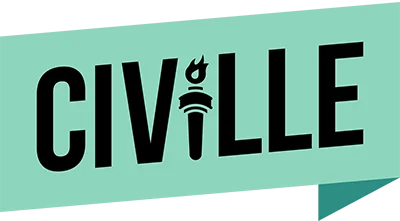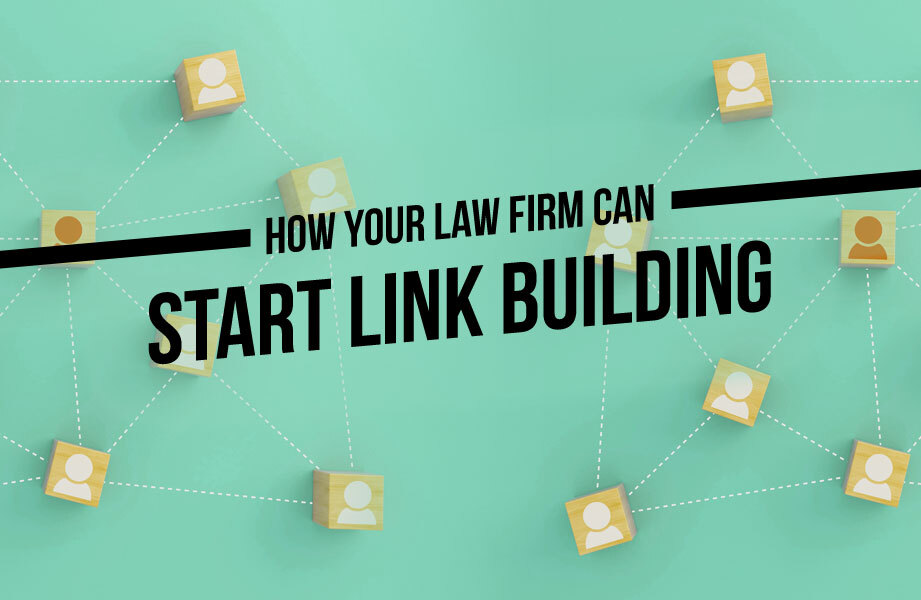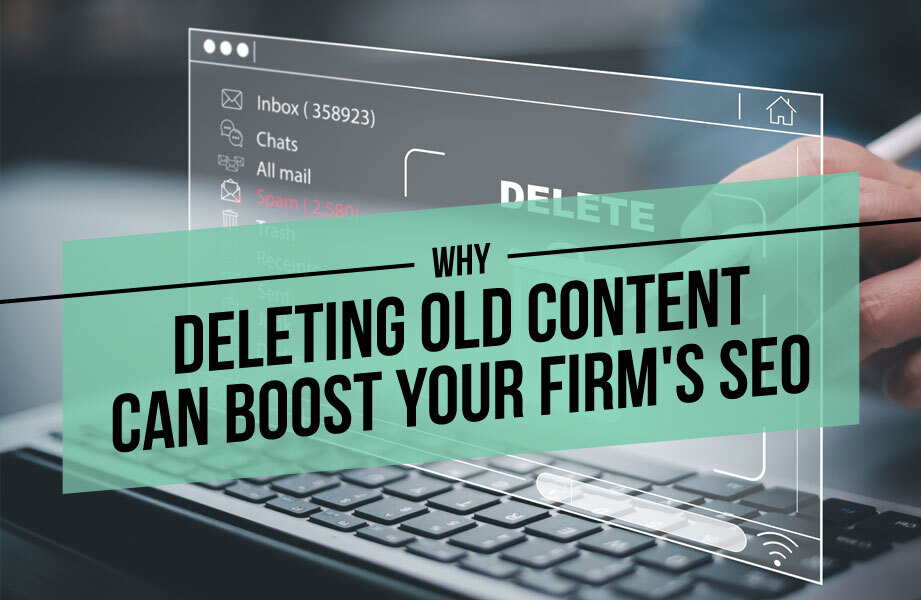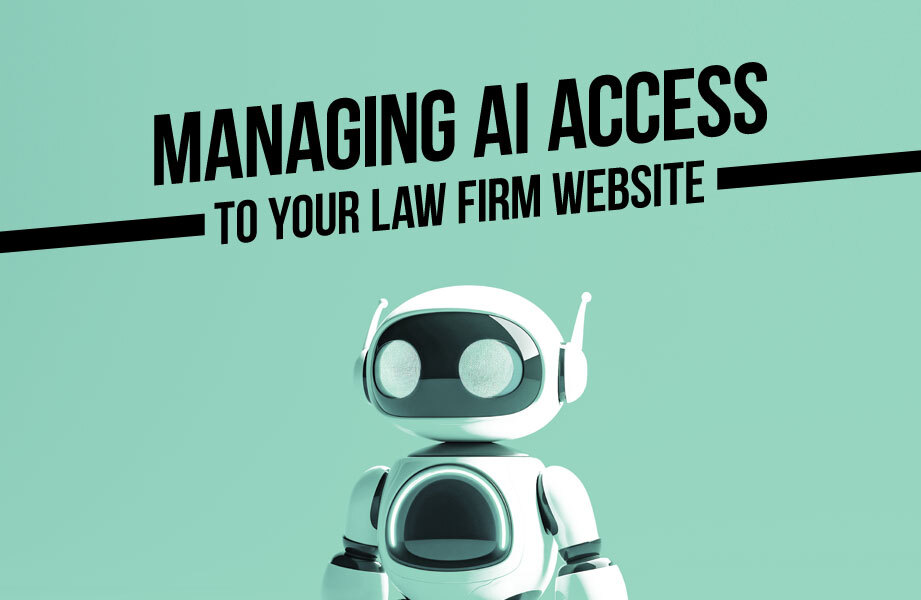
You’re probably hearing a lot of panic right now. The tech world and major news publishers are in an uproar about “AI content theft.” You’re seeing headlines about massive lawsuits and hearing about big media companies actively blocking AI bots from their websites.
In the new age of search, blocking these AI bots is an act of fear that guarantees your irrelevance. You don’t want to block the AI. You need to impress the AI. Let’s break down what’s really happening and why your firm’s strategy should be the exact opposite of what the panicking publishers are doing.
What Is This “AI Blocker” Anyway?
For decades, websites have used a simple text file called robots.txt. Its job is to give instructions to incoming “bots,” like the Google search crawler. It tells them which pages the bots are allowed to crawl and which pages they can’t crawl.
With the explosion of generative AI, new bots have shown up at the door:
- GPTBot: This is the bouncer ID for OpenAI, the company behind ChatGPT.
- CCBot: This is from Common Crawl, a massive public dataset that many AI models use for training.
- Google-Extended: This is Google’s own specific “AI bouncer.”
When you see a news organization blocking GPTBot, they are telling ChatGPT, “You are not allowed to read our content to train your model.” They believe the AI is stealing their product.
This is the single most important distinction you need to understand: A publisher’s content is their product. Your law firm’s content is marketing.
The New York Times sells subscriptions. Their entire business model is based on being the only place you can read their exclusive content. You, as a law firm, have a service-based business model. Your content—your blog posts, your practice area pages, your legal guides—is a billboard. Its entire purpose is to be seen by as many relevant people as possible to prove your expertise and attract a client.
You want people to read your billboard. Blocking the very technology that is becoming the main way people find information is self-sabotage.
How is Google’s AI Mode Affecting Law Firm Search
Your Website Is No Longer a Brochure. It’s an Audition.
To win in the next phase of the internet, you have to reframe what your website is for. It’s no longer a passive digital brochure that waits for someone to find it. Your website is now in a constant, 24/7 audition.
Think of Google’s AI (which powers its AI Overviews) and ChatGPT as the world’s most powerful, most knowledgeable research associates. Your potential clients are now using these associates to do their initial research. When AI’s bots, like GPTBot or Google’s own crawler, visit your website, they are not there to “steal.” They are there to audition your firm. They are trying to answer one critical question:
“Is this law firm a credible, authoritative expert on this legal topic?”
When that audition happens, there are only two possible outcomes.
Outcome 1: You Block the AI Bots
The AI research associate (let’s say GPTBot) arrives at your website. It checks the robots.txt file at the door and sees a “Keep Out” sign. It respects the sign and leaves immediately, having learned nothing.
Later, when your ideal client asks ChatGPT a crucial question about Wisconsin family law, the AI formulates its answer. It uses information from your competitors’ websites—the ones who left their doors open. It synthesizes a helpful summary based on what they said. Your firm, for all intents and purposes, does not exist. You didn’t even get a chance to audition.
Outcome 2: You Welcome the AI Bots
The AI associate arrives at your website. It finds the door wide open and reads your meticulously researched, clearly written, expert-driven content. It reads your detailed guides, your helpful blog posts, and your authoritative attorney bios. After all this, it concludes: “This firm is a genuine authority.”
Later, when your ideal client asks that same question, the AI formulates its answer. It synthesizes a summary based heavily on your content. It might even cite you directly: “According to the experts at Smith Law Group, the first steps in a Wisconsin divorce typically involve…”
In this new world, your goal is not just to get a click. Your primary goal is to become the cited, authoritative source that the AI relies on. Blocking the bots makes this new, critical goal completely impossible.
What About Google-Extended? The One Exception You Still Shouldn’t Use
Google has a blockable property in robots.txt called Google-Extended. Blocking Google-Extended does not remove your site from Google search results. It’s a very specific instruction that tells Google, “You can index my site for your ten blue links, but you are forbidden from using my content in your generative AI products like Gemini or the AI Overviews at the top of the search results.”
Now, read that back. Why, as a law firm, would you ever do this?
You are telling the world’s largest search engine, “Please, do not use my expert content in your newest, most prominent, and most helpful answer format. I would prefer you quote my competitors instead.” For a law firm whose entire marketing strategy depends on being seen as a helpful expert, blocking Google-Extended is a strategic mistake.
A Quick Word on LLMs.txt (And Why It’s a Distraction)
As this panic about “AI theft” has grown, you might have heard some tech folks talking about a new file called LLMs.txt.
Let’s be clear: This is not an official standard. It’s a proposal, an idea that some in the tech community are pushing. Where robots.txt is the bouncer at the door (controlling access), LLMs.txt is an attempt to create a set of “house rules” for what a bot can do after it’s inside (controlling use).
In theory, this file is a more granular set of instructions. It’s meant to tell an AI, “You can visit my site for search indexing, but you are forbidden from using my content to train your AI model.” This is a tool born directly from the business model of large publishers who sell content. They don’t want AI models trained on their product for free, only to have the AI spit out summaries that replace their need to exist.
But you are a law firm. Your content is marketing.
So, do you need an LLMs.txt file? The short, direct answer is no. For your law firm, LLMs.txt is a solution to someone else’s problem. It’s a complicated, technical barrier that solves nothing for you and only adds another layer of “keep out” that you don’t want.
Worrying about this is a strategic distraction. It puts you on the defensive. Your goal isn’t to create complex new rules for the AI. Your goal is to have the AI look at your content and conclude, “This firm is the authority.” You want the AI to train on your content because you want it to learn that you are the expert on Wisconsin family law or Texas personal injury.
Don’t join the panic. Focus on the audition.
Let’s Talk About “False” Traffic (And Why It’s a Good Problem)
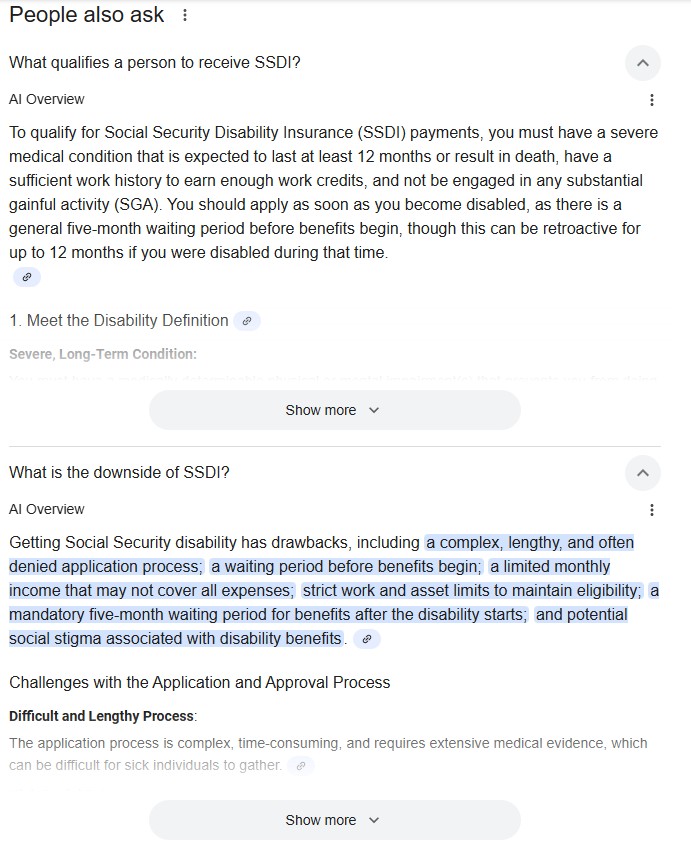
At this point, you or your tech person might be saying, “But ever since these AI bots started visiting, my server analytics are a mess! I have all this ‘false traffic’!”
This is a valid complaint. These AI bots, especially GPTBot and CCBot, can generate a significant amount of traffic. They crawl your site to learn from it. If you look at your raw server logs, it can look like you’re getting thousands of new “users” who don’t behave like humans (because they aren’t). They don’t fill out contact forms. They don’t call you.
This is not a problem. This is the sound of opportunity.
This “false” bot traffic is the sound of the AI’s research associates doing their homework on your site. It is the sound of your firm being auditioned, over and over again. A quiet server log in 2025 is not a sign of an efficient website. It’s you being ignored by the new internet.
Your marketing team’s job is to segment this traffic. Modern tools like Google Analytics 4 are already very good at filtering out most known bot traffic so it doesn’t pollute your human engagement metrics. For everything else, it’s about creating new reporting filters or simply understanding that “total raw traffic” is a vanity metric.
The real metrics have always been the same: qualified leads, signed cases, and revenue. That bot traffic is simply the new cost of admission to be considered a source for those leads.
The Real Risk Is Not That AI Will Read Your Site
Let’s put the panic about “content theft” to bed. It is a massive distraction from the real conversation we should be having.
The real risk is not that AI will read your website. The real risk is that AI will read your website and conclude that you are not an expert.
What does a “bad” website look like to an AI that’s hunting for authority?
- Outdated Content: Your blog posts from 2018 that still reference an old, repealed statute.
- Thin, Generic Content: A 300-word “practice area page” that just gives a textbook definition of negligence without any real-world insight.
- Low-Quality AI Content: Pages clearly written by a cheap AI tool, full of fluffy, repetitive sentences, and lacking any human experience.
- A Confusing Structure: A messy website with no clear navigation, broken links, and no logical hierarchy.
When the AI associate finds this site, it doesn’t just ignore it. It makes a note that this site is a low-quality, untrustworthy source. This is far more damaging than being blocked.
Read More: Does AI Traffic Still Convert for Law Firms?
How to Impress the AI (And Win the New Search)
This is how you shift your strategy from defense to offense. You make your website the single best, most authoritative, most helpful resource on your practice area in your location.
1. Double Down on Real Expertise
You cannot fake this. Your content needs to be infused with your real-world experience. This is where your marketing team and your attorneys must work together. You, the lawyer, have the invaluable insights and case histories. Your marketing team (like Civille) has the expertise to extract that knowledge and translate it into powerful, authoritative content. This is a partnership.
2. Structure Your Content for a Machine
AI bots are smart, but they’re also literal. You need to make your content incredibly easy for them to read and understand. This means using clear, logical headings and subheadings. It means using Q&A formats and implementing FAQ schema (the code that explicitly labels a question and its answer). This is the technical work of making your genius easy to find.
3. Audit and Prune Your Old Content
You must get rid of the junk. As we’ve discussed in other posts, you need to conduct a content audit. Find those old, outdated, low-value pages that are dragging down your site’s overall quality score and get rid of them. A leaner, higher-quality website is far more impressive to an AI than a bloated, messy one.
4. Build Your Brand Beyond Your Site
The AI doesn’t just learn from your site. It validates your expertise by looking at what other sites say about you. This is where your Google Business Profile, your legal directory listings (like Avvo), and your local community links all come into play. A strong, consistent brand across the web reinforces the authority the AI sees on your website.
Making Your Firm an Authoritative Source for Google’s AI
Stop Building Walls. Start Building Authority with Civille.
The panic around AI content access is a red herring. It’s a distraction from the real, hard work of building an authoritative online presence. Blocking AI bots is an act of fear that guarantees you will be left behind. Opening your doors and meticulously preparing your content for inspection is an act of confidence.
At Civille, we don’t build walls, we build authoritative platforms. We create strategies designed from the ground up to make your law firm the definitive source of information in your field. We partner with you to translate your legal expertise into a powerful digital asset that wins in the age of AI. If you’re ready to stop worrying about “theft” and start focusing on “authority,” it’s time to talk to Civille.
